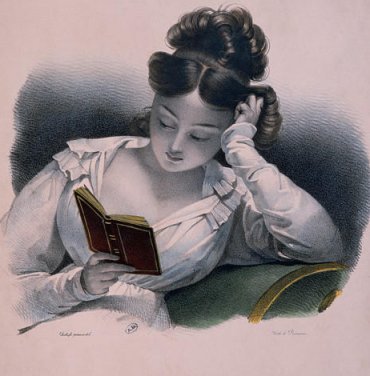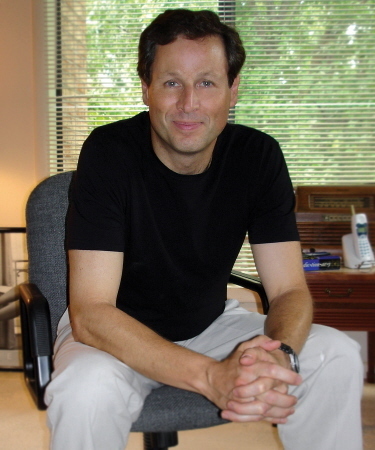Jane Friedman's Blog: Jane Friedman, page 191
April 24, 2012
3 Horrible Mistruths About Social Media That Drive Me Insane

Flickr / tq2cute
This post really needs no introduction. Let’s just get to the rant, in my favored numbered list format.
“Who cares what you had for lunch?” Seriously? Your excuse for hating social media is that people talk about what they’re eating? You know what the problem is? You have boring friends with no personality. Find someone worthwhile to follow online, and if that person DOES talk about their lunch, I guarantee you’ll want to know about it.
“It’s mindlessly narcissistic and ego-driven.” Seriously? Are you only following celebrities, rappers, and politicians? Or those snobby popular kids from high school? Because the people I know on social media are relentlessly OTHER-focused, service-oriented, and humble. Otherwise, no one would follow them.
“It’s a time waster.” Seriously? Relationship building is a waste of time? Having a conversation and sharing information is a waste of time? OK, I admit, some people get sucked in and really DO waste their time, but just because some people can’t be self-disciplined doesn’t mean it’s a time waster. We’re grown ups. We can handle the responsibility of writing, working, AND being social, can’t we?
Join my rant and share your favorite mistruths in the comments.
April 23, 2012
Perfecting Your First Page: 3 Tasks or Exercises

Delacroix, Faust Trying to Seduce Margarete (detail)
Over the weekend, I was a speaker at the Missouri Writers Guild conference (a terrific group of people and an impeccably run event). One of my sessions focused on evaluating the first page of your novel or memoir manuscript.
Here are 3 of the best exercises or tasks you might undertake when thinking about your first page and how you can improve it before sending it to agents or editors.
What is the absolute latest moment in the manuscript you can begin your story, and still not leave out anything that’s critical to the story problem? Most manuscripts I read should really start somewhere between page 5 and page 30. Be ruthless in evaluating your opening—have you dawdled in revealing the story problem? It ought to be seeded on page 1.
What details do NOT relate to the story problem or the protagonist? We rarely need the complete biography of your main character on the first page. Let those details emerge as the story unfolds. Don’t share the everyday, mundane details we could guess. Share the most unique, special, distinctive details—the ones that really matter to the story and character from the start. The No. 1 mistake for first pages is overwriting—or working too hard at “painting a picture.” If you load up on every single detail, how am I supposed to know which ones are important? Be selective. Be artful.
Have you shown or described something that really ought to be quickly summarized (or “told”)? Sometimes writers go into flowery description about something that should be flat-out stated. Admittedly, this is an issue that will remain relevant on every single page of your book. Joyce Carol Oates once said, “Storytelling is shaped by two contrary, yet complementary, impulses—one toward brevity, compactness, artful omission; the other toward expansion, amplification, enrichment.” When it comes to impatient editors and agents, favor brevity and artful omission in your opening pages.
Bonus tip: Highlight every adjective, adverb, and modifying phrase. Do you need them all? Start pruning!
If you enjoyed this advice, you can check out my basic slide presentation on evaluating your first page. (If the slideshow doesn’t appear below, click here.)
Evaluating Your First Page
April 20, 2012
Is Your Work Commercially Viable?

Flickr / Giovanni Orlando
Writers often ask, “How do I get published?”
But I don’t like to answer that question until I know what exactly they’re trying to publish. I’d say at least 50% of new writers are attempting to publish a work that would be deemed commercially unviable by a Big Six house, at least as initially conceived.
Note #1: This does NOT mean the work couldn’t be successful outside commercial publishing. Quite the contrary.
Note #2: This also doesn’t mean that a commercially viable work couldn’t ultimately be produced, but a lot of time can be wasted trying to overcome hurdles that even a professional writer wouldn’t want to jump.
Here are indicators to help determine if you have a commercially viable work in the eyes of a Big Six publisher or literary agent (who presumably only want to spend time on projects that will turn a profit and reduce risk).
Positive signs of commercial viability
For first-time novels: approx. length of 80,000 words
Romance, mystery/thriller/crime, and young adult genres
For nonfiction authors: visibility and proven reach to a to target readership (otherwise known as platform)
Not as commercially viable
Poetry and short story collections
Essay collections, column collections, etc
For nonfiction authors: Trying to write on health/medicine, psychology, or other professional fields when you don’t have the authority or credentials to give professional advice (in other words, you’re writing based on the experience of an “average” person)
For most novels: length above 100K or length below 60K
Memoirs crossed with self-help, as well as memoirs that don’t have a fresh/distinctive angle
Mixed genre works that can’t be easily categorized
This is by no means a comprehensive list of all the possible reasons your work might not be commercially viable, but it covers most cases I see.
What are other things you’ve heard? Do you have questions about what’s a deal breaker or not? Share in the comments.
April 18, 2012
Writing & Publishing Terminology 101

Brian Hathcock / Flickr
Today I’m revisiting a few of the basics of getting published. (There are always people new to the writing and publishing community who need the info!) If you like this post, definitely check out Start Here: How to Get Your Book Published.
What are submission guidelines?
Also called writers guidelines, submission guidelines are instructions from editors, agents, or publishers on what submissions they’d like to see from writers, and how they prefer you submit your material. Guidelines briefly describe the publication’s or publisher’s audience, the type of material published, and the type of material that’s not accepted.
Reviewing submission guidelines is critical if you want to find an agent or a publisher, and should ideally be combined with studying an agent’s client base or a publisher’s recent releases. Most agents and publishers post their guidelines on their website.
Tip for the digital age: If submission guidelines appear to be out of date, look for more information on agent/editor blogs, writing community sites, or Facebook/Twitter.
What does it mean to “market your material”?
It means selling what you write. “Study the market” means study the places where you might submit your work—and you usually start by reading the submission guidelines.
Tip for the digital age: Check out free resources I recommend for researching markets.
What’s an SASE?
Acronym for self-addressed, stamped envelope. A SASE should almost always be included with any snail mail submissions.
Tip for the digital age: Always include your e-mail address with submissions, even when submitting via snail mail.
What’s a query?
A query is a letter to an editor or agent attempting to sell him (or seduce him) on the idea of your book. A typical query is 1-page, single-spaced. For more on queries, reference my series on novel query letters at Writer’s Digest. Not all publications or agents accept queries. Their guidelines may state they are closed to submissions, or the guidelines may state that unagented submissions are not accepted.
Tip for the digital age: If sending your query via e-mail, send it as plain text, block format, to prevent any software/format compatibility problems. Don’t include any colors, images, or cute fonts.
What’s an unsolicited manuscript?
When you submit a manuscript without the publisher/agent requesting it, your manuscript is unsolicited. In such a case, the publisher/agent has not given any indication she will read the work; she and the writer have not previously communicated. Many publishers will not read unsolicited manuscripts; they expect a query first.
Tip for the digital age: Find out online what conferences agents or editors are attending and see if they are accepting appointments or pitches. That can help open otherwise closed doors.
What’s the slush pile?
Slush pile is a term for all the unsolicited material (queries or manuscripts) received by those in publishing.
What is an agent and what do they charge?
An agent acts as liaison between author and publisher (editor). An agent shops a manuscript around to editors, receiving a commission only when the manuscript is accepted for publication. Agents usually take a 15 percent cut from the advance and royalties after a sale is made.
Tip for the digital age: Agents’ roles are changing, and they are more open to working with authors in nontraditional ways. Read each agent’s website carefully to see what opportunities or services are available.
What is a simultaneous submission?
A simultaneous submission is a manuscript submitted for consideration to more than one publisher or agent at the same time. Some submission guidelines state that simultaneous submissions are not accepted.
Usually “simultaneous submission” refers strictly to manuscripts under consideration—not query letters, which are commonly sent in batches.
Once frowned upon, simultaneous submissions have become a common practice, mainly because of today’s lengthy response times. My personal advice: (1) Don’t submit to agents or editors who don’t accept simultaneous submissions or (2) Allow exclusives for very defined and reasonable time periods given the length of the manuscript or (3) Be sly and don’t let on that the material is being considered by multiple parties. Life is too short, and response times too long.
What is a multiple submission?
Technically, this is sending multiple manuscripts or story ideas to a single editor or agent for consideration. Don’t do it. But sometimes this term is used interchangeably with simultaneous submission.
What is a proposal?
Proposals are used to sell nonfiction book ideas; instead of writing an entire nonfiction book and then trying to find a publisher or agent, you generally write the proposal first.
Tips for the digital age: Read my post on whether or not you ought to write a book proposal, as well as my series on nonfiction book proposal secrets.
What is a synopsis?
Synopsis can be a confusing term, since its meaning dpeends on the context. Synopsis most frequently refers to a brief summary of a novel, but synopsis can also refer to a section of a nonfiction book proposal. Synopsis requirements vary widely. Click here to find out more about them. Sometimes you’ll hear synopsis used interchangeably with outline.
What’s an advance?
An advance is a sum of money a publisher pays a writer prior to the publication of a book. It is usually paid in installments: for instance, one-half on signing the contract and one-half on delivery of a complete and satisfactory manuscript. The advance is paid against royalty money that will be earned by the book, which means that royalties will not be paid to the author until the publisher has recouped the total sum of the advance from the author’s royalties.
What is meant by rights? What rights do you sell, and what rights do you keep?
A writer owns all rights to his literary creation upon putting it in tangible form. He is entitled to decide who shall own the right to print his work for the first time, make it into a movie, adapt it into different formats or editions, and so on.
When selling your rights to a book publisher, the contract you sign will indicate what rights you keep and what rights you grant to the publisher (and when the publisher ceases to hold any rights). Regardless of what rights are granted to the publisher, the author—in most traditional book contracts—will retain copyright and can regain all rights to the work after a specified period. The big exception to this rule is work-for-hire agreements, where the author relinquishes all rights to the work.
Did this terminology lesson spark additional questions? Leave them in the comments! Or, reference my writing advice archive for my best posts on all topics.
April 17, 2012
The Basics of DIY E-Book Publishing
In the latest issue of Writer’s Digest to hit the newsstands (May/June 2012), you’ll find my feature article on “The Basics of DIY E-Book Publishing.”
Here’s a brief excerpt where I discuss what you need to consider before you e-publish:
Even though e-books are skyrocketing in adoption, ask these questions before you begin:
• Do your readers prefer print or digital?
• If you don’t know what your readers prefer, is it common for authors in your genre to release e-books only? Do e-publishers exist in your genre?
• Is your book highly illustrated? Does it require color? If so, you may want to avoid e-publishing since such works pose significant challenges for an independent author.
• Do you know how to reach your readers online? People who buy e-books will probably find out about your work online.
An author who is primed to succeed at digital publishing has an entrepreneurial spirit and is comfortable being online. Ideally, you should already have an online presence and an established website. You also need to be in it for the long haul; sales usually snowball over time, rather than occurring within the first months of release.
The article discusses:
How e-publishing services work
The two key categories of e-publishing services
The basics of converting and formatting your work, the major formats you need to know, and the tools for converting/formatting
Considerations for designing an e-book cover
How to maximize your sales
What to do about traditionally published work
Agents who offer e-publishing services
Resources for remaining up-to-date on the industry
You can get the issue at major newsstands, or by purchasing the PDF online from the Writer’s Digest Shop.
If you’d like to read my past (free) articles on this topic:
10 Questions to Ask Before Committing to Any E-Publishing Service
Groundbreaking Tools for Creating E-Books
My archive of all posts on e-books
April 16, 2012
An Author Who Markets Her E-Books in Airports
Today’s guest post is by Ann Okerson. Ann shared the following story on a listserv I belong to, and I asked her permission to share it with you, because I find it fascinating and instructive for authors everywhere.
The other day I was sitting at Dulles airport, awaiting my flight to Hartford, Connecticut, reading a book on my Kindle Fire.
(It happened to be Robert Harris’s Imperium. Blurb: “The re-creation of a vanished biography written by his household slave and right-hand man, Tiro, Imperium follows Cicero’s extraordinary struggle to attain supreme power in Rome.” I’ve found the book riveting, though several negative reviews on Amazon point out that there is too much detail and too many unpronounceable names that are hard to remember—but I digress.)
As I was reading, an unprepossessing young woman approached and handed me a business card. She said, “This is the card of my sister, Stephanie Queen; she writes e-books—wasn’t able to get a start in print, so she’s doing her own writing and formatting and promotion.”
Though not quite as exciting as Imperium, this was a welcome diversion while passing 3.5 hours of connect time, so we talked some more. Apparently, the sister writes romantic fiction, makes it available for several e-book platforms, is getting good visibility through reviews (the online ones seem positive; I’ve just looked), networking with other romance writers whom she lists on her own Web site, and making up stacks of business cards for family and friends to hand out at places where people are bored, such as airports. And, there’s also a second card with a code that gets you a free copy of one of the books, but Sister had run out of those. She apologized, but noted the books are cheap and affordable, even if not free! She was quite a fan herself.
We’ve all heard and read (and here shared) stories about writers getting launched in e-world. This is a first-hand story about one such person and her marketing campaign. Pity the novelist wasn’t in the boarding area! In case anyone is interested in her self-presentation, the web site is www.stephaniequeen.com.
April 13, 2012
The Future of Reading: The Syllabus
I recently received the following request from a friend & former classmate:
Can you suggest a few key / huge / current books on the evolution of e-books and e-media, especially in the face of print culture? Theory, numbers, personal essays, experiences? How print and electronic texts augment each other or not?
What a great prompt. It brought to mind all kinds of wonderful things I’ve read or seen lately—though most are not in book form.
I thought I’d share my response publicly, and also gather your recommendations in the comments, because I know I don’t have a comprehensive list (yet!).
Books
Book: A Futurist’s Manifesto (collection of essays)
The Case for Books: Past, Present, and Future by Robert Darnton (read an interview with Darnton, “Do Books Have a Future?”)
Clay Shirky has two books that look at larger cultural/tech shifts, both of which speak to writing/media/publishing quite a bit: Here Comes Everybody & Cognitive Surplus. (See below for more Shirky.)
Websites, Blogs, Events, Talks
BookTwo (James Bridle). Check out his blog entries AND his talks, where available.
Books in Browsers event. Scan for links to presentations and videos.
Lean Back 2.0. I’ve been mentioning this one a lot lately. See the presentation that kicked it all off.
The Institute for the Future of the Book. Check out their blog, if:book.
Specific Posts
How We Will Read, recent Q&A with Clay Shirky. And here’s Shirky’s blog.
Post-Artifact Booking & What Books Will Become by Kevin Kelly
Wikipedia & The Death of the Expert by Maria Bustillos
What else is there? Let us know in the comments!
April 11, 2012
Freelance Success Is About Process, Not Personality
The following interview with Peter Bowerman is excerpted from How They Did It by Diana Bocco, a collection of Q&A with 25 writers on how they earn a living through their writing. Peter Bowerman is well known in the writing world for earning a six-figure income from his writing for more than a decade. He's the author of The Well-Fed Writer.
The most you've ever made from a single piece of writing: As a commercial freelancer, my most lucrative project was an ongoing web site update that paid me $12,500+. Coolest ongoing gig for a six-page monthly internal newsletter for a telecommunications giant that paid $4,500 a month for a year. Sweet. As for books, the original edition of The Well-Fed Writer has earned me hundreds of thousands of dollars since its release in 2000.
Your background before becoming a writer: I was in sales and marketing for 15 years prior to starting my writing business. Sold everything from books door-to-door (for two summers while in college), to computers to timeshare property with Marriott to ad specialty/incentive items to dating club memberships. A checkered past.
How you made the jump to freelancing: In the months before taking the plunge, I wrote a few columns for some local weekly rags, earning (if I was lucky), peanuts. I soon realized I'd never make a full-time living that way. I'd always wanted to be a writer but had no interest in struggling (15 years in sales will have you get used to earning decent money). I came across a book on commercial freelancing (writing for companies of all sizes and for healthy $50-$125/hour rates) that gave me a eureka moment. This is how I'd do it.
[I] went into it cold turkey: no part-time job to pay the bills; just saved enough for about six months' worth of expenses and jumped in. Made about 1,000 phone calls the first two months (to every ad agency, graphic design firm, marketing company and PR firm in Atlanta, for starters), and before four months were up, I had more work than I could handle.
Areas of specialization: Roughly equal parts commercial writing and self-publishing-related efforts (i.e., writing books, ebooks, ezine, blog, coaching, speaking, etc.).
Typical workday: No such thing as typical. Sure, too much time in front of the infernal machine, but every day has a different docket. On any given day, I might be working on the latest round of direct mail postcards for that utility client; brainstorming possible book titles for a novelist client (part of my Title Tailor business, an offshoot of my self-publishing coaching service); on the phone with a commercial writing or self-publishing coachee; working on pieces for my ezine or blog (or guest posts for others' blogs).
How many hours you work: I feel like I'm lazy, but then I'll catch myself putting in three-hour stretches at 10:00 p.m. more often that not. Probably 35-40 hours a week, maybe more.
How you land assignments: I get commercial writing work through repeat business from clients, and referrals, and through general marketing efforts (cold calling, networking, etc). I get coaching clients with little effort or outreach. Most find me through my books, plus I advertise in my newsletter and on my site, and get a decent flow of work that way. And often people find me through searches.
Your clients: On the commercial writing side of things: Coca-Cola, IBM, UPS, Cingular, Georgia-Pacific, BellSouth, American Express and tons of others. Working with the big boys makes for an impressive resume, but truth be known, I vastly prefer working with small-to-medium-sized companies. Not so corporate (i.e., creativity-killing) and bureaucratic; they value your contributions more than big companies, making the whole process more fulfilling in general.
Most important qualities for a freelancer: Resilience, persistence, determination, willingness to market yourself on a consistent basis (you never have to like it, but you do have to do it), tolerance for long, grueling, life-out-of-balance stretches, comfortable with yourself (because you'll be spending a lot of time with you), sense of humor, intellectual curiosity.
But most importantly, you need to be a better-than-average writer. Brilliant isn't necessary (though it sure helps), but middling skills will make it tough to land repeat business and referrals as a commercial writer, which is how you really grow your business. And, needless to say, go where the money and work are. And these days, for those starting out, magazine writing (an arena which has gone through a veritable bloodbath in recent years), is an exceptionally tough row to hoe.
Long-term goals: I don't set goals. Seriously. Never have. Except general ones in the early years (e.g., make a full-time living at this and make a full-time living plus a little more). Past that, I've simply followed my interests and let things (i.e., new products, books, ebooks, coaching, ezine, blog) unfold organically.
I say the very idea of creating five- or ten-year plans is dumb. You focus too much on something down the road, you're going to miss out on things right in front of you.
More importantly, since every experience you have makes you a different person, expands your perspectives, and opens your eyes to new avenues and opportunities, how in the world can you know, today, who you'll be in, five or 10 years down the road, and by extension, where you'll want to be?
Saw a great chapter heading some years back in a book called Goal-Free Living by Stephen M. Shapiro that addressed this. It read: "Use a compass, not a map." Know the general direction in which you're headed, but don't have your nose so stuck in a map and so fixated on following some pre-set path that you miss opportunities along the way.
Words of advice: Many people considering commercial freelancing or self-publishing believe you need to be some natural-born marketing genius in order to succeed. To those folks, I'd assert this: Success is far more about a process than a personality (i.e., a marketing personality); it's far more about a lot of things you have to do, rather than some way you have to be. Keep believing you need special skills and you limit yourself out of the gate.
April 10, 2012
Why It's OK to Be Naïve

Dr. Motte / Flickr
Today's guest post is by writer Nick Thacker.
Many "normal people" ultimately fail to achieve what they set out to achieve. They'll struggle for years subsisting on a 9-5 dead-end job, keeping that unfinished manuscript in a drawer—socking away 10% of their income until their blissful-yet-underwhelming retirement. It's not very encouraging, is it?
Let me tell you what is encouraging, though: Most of the people who are "successful," either in your eyes or their own, are just like you—"normal" people.
They're not geniuses, ninjas, or savants. Some get lucky; some have the right connections.
When I wrote my book, I wasn't focused on sales, or even on crafting the next Great American Novel. Instead, I said to myself, "I'll bet I can write something that's at least as good as the stuff I read."
If I had done my research first—uncovering what it would take to "break in" to book publishing, I would have quit before I started.
If you let the fear of the unknown ("could I make it in this world?") stop you from even starting, you won't start.
Instead, choose to be naïve.
Focus on a personal, fulfilling goal of shipping your dreams (in Seth Godin's words).
"Successful" people often have one thing in common: They refuse to maintain the status quo, adhere to the world's rules, or follow the norm.
If you will allow yourself to "be naïve" and not let the huge world of expectations get to you, opportunities will arise.
Your initial efforts probably won't be the pinnacle of achievement—but they're complete. That should be your goal. You'll learn more going through the processes than you ever will in a school (and I do have a music degree, so I can speak to that!).
If you truly want to achieve personal success—in whatever area—try these "rule-breaking" rules.
If it's writing a book, well—write a book or three!
If it's getting an awesome author mentor, start by asking your favorite author. Yeah, they'll probably be too busy—but then ask them for their recommendation for a good mentor!
If it's a better/improved/different lifestyle, stop reading about it—go find the people who are doing it, and ask them what they did to get there.
"But what if I fail?"
If you define an achievable and responsible goal, and fail while reaching for it, you've most likely gotten way ahead of the competition already:
Our fear of failure leads us toward procrastination, lack of motivation, and, well, failure. But by being naïve and reaching for the most out-of-reach goals and successes we'll at least be motivated by the fact that we're part of the few who can say we've tried it.
Let's get specific: what things are you reaching for? In what ways have you succeeded (or failed miserably)? And in what ways can you be more naïve? Leave a note in the comments.
April 9, 2012
Groundbreaking Tools for Creating E-Books
In my latest e-newsletter over the weekend, I shared three new tools for creating e-books. If you missed it, then you can view the newsletter here.
Click here to sign up and receive future sends—or view the archives first. Each newsletter focuses on new tools and resources for writers. (Your address is never spammed or sold.)
Jane Friedman
- Jane Friedman's profile
- 1882 followers








